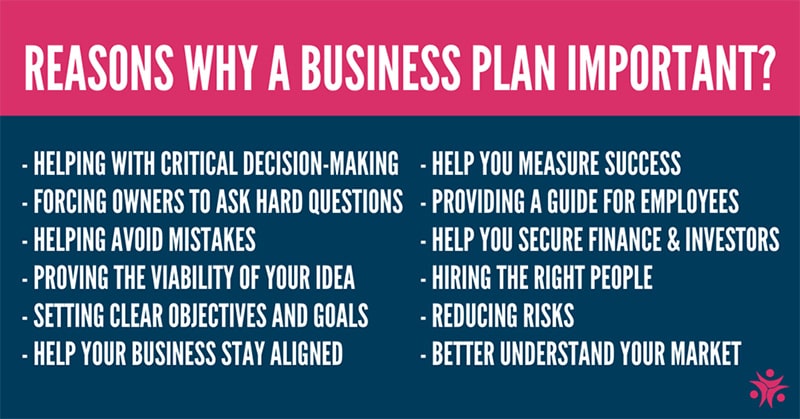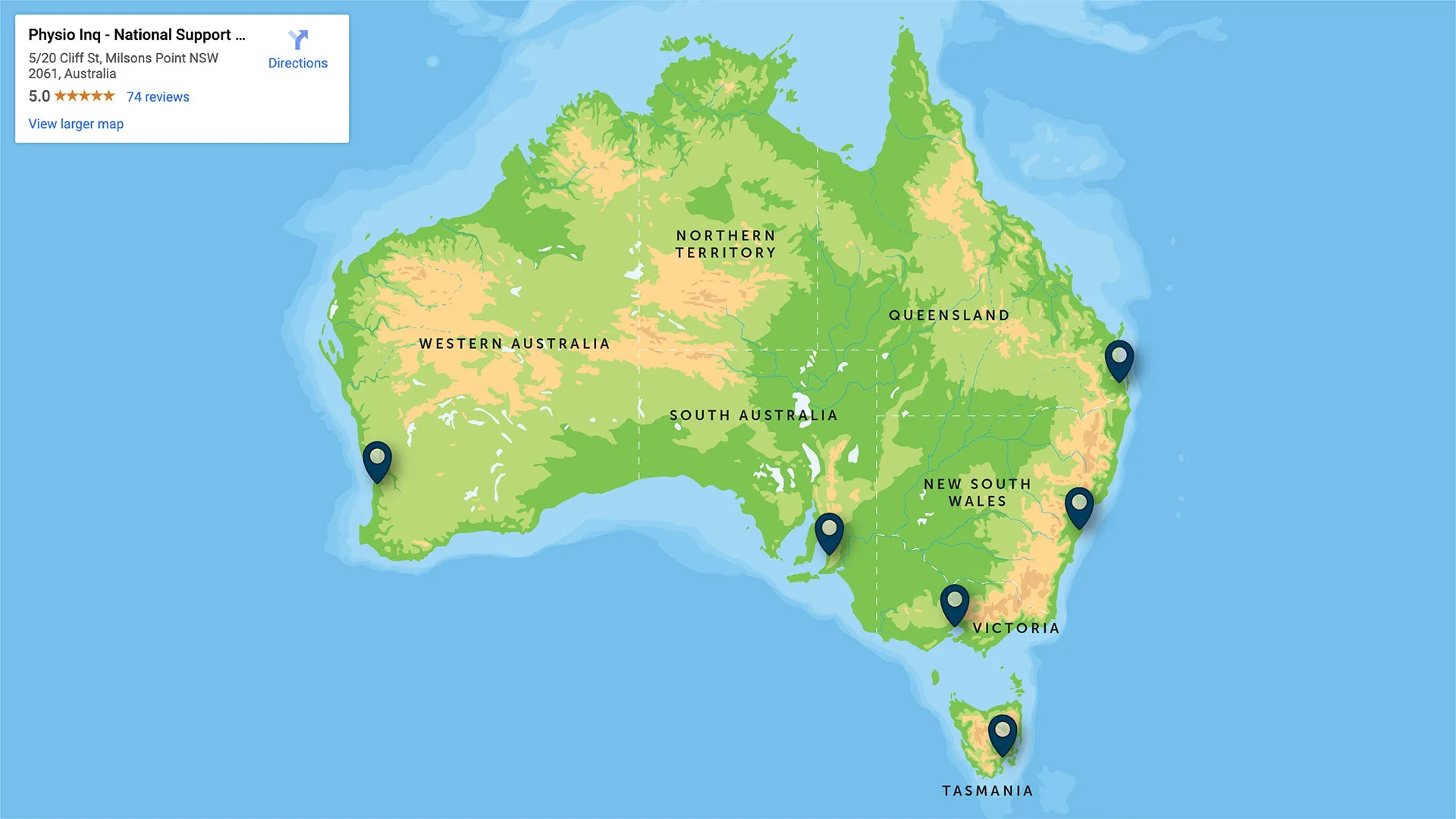The Importance of Business Planning
Originally Published Oct 7, 2020
Many of us have amazing ideas for a new business. We get super pumped to jump right into the deep end. Who needs a plan?! Right?
Wrong.
We all need a business plan to help us solidify our mission, set goalposts and milestones, strategise and create a viable business structure, and much, much more.
Business plans keep us on track without getting distracted or bogged down by too many moving parts. It’s an essential part of the process.
Here, we’ll discuss business planning, how to write a business plan, and business plan examples, complete with an effective business plan template for new business owners.
What is a business plan?
A business plan is a tool to help future business owners make decisions. Business plans, sometimes known as a business continuity plan, work as a guide, providing clarity about financial decisions, short-term and long-term goals, competitors, supply and demand, marketing, operations, and everything in between.
Most business plans are rather extensive and might seem like a lot of unnecessary work. But, business owners who opt to forgo the exercise tend to fall behind. In fact, your business plan should be revised and updated every five years or so.
If there’s anything you’ll learn in business, it’s that things are always changing. So, as much as you will want to stick to your business plan for the long haul, you just don’t know what you don’t know.
In short, you’re not necessarily locked into your business plan forever. But, it’s an amazing goal-setting and decision-making tool that every business owner needs.

Why do you need a business plan?
If you’re hoping to start a business, chances are you’ve found something you’re passionate about and you’re eager to get started. However, when this is the case, it’s even more important to create a business plan.
When you take the time to do research, deeply think about your plans and goals, and crunch the numbers, you’re setting yourself up for success. When we skip the business plan, we’re far more likely to make rash decisions based on emotions versus data.
Plus, when problems arise (as they always will), you’ll be able to rely on your business plan to help you make decisions and changes that will remain in line with your original goals.
The business plan will keep you on track and prevents distractions. It’s the train tracks of your business that will keep everything moving smoothly and skipping this step is one of the biggest mistakes new small business owners make.
Some of the major reasons why a business plan is important includes:

Step-by-Step Guide on How to Create a Business Plan
Hopefully, by now, you fully understand the importance of a solid business plan to create the foundation of your new idea. But knowing how to make a business plan from start to finish is a whole other story.
Whether you need a small business plan or a business plan for a massive project, here is a common business plan template to get started.
Before You Start...
Analyse your business and analyse yourself. Before you even start planning, you’ll want to get really honest with yourself about whether your business idea is truly viable and whether you’re really ready to be a business owner.
If so, let’s get started.
How to write a Business Plan
Writing a business plan can be a daunting task. Follow the below structure to help you set our your plan and stay on track:
Part 1: Goals and Plans
The first part of your Business Plan should define your business goals, strengths, weaknesses and assess your position in the overall market.
Things to include:
Mission Statement:
What is a mission statement? Simply put, a mission statement is a formal summary of the aims and values of the company or organisation. It needs only be a few sentences long but should outline things such as ‘why does your organisation exist’ or ‘what kind of product or service you provide’.
Strengths, Opportunities, Weaknesses, and Threats (otherwise known as a SWOT Chart)
This is a breakdown of your companies’ strengths (i.e. things your organisation do well), any opportunities you can highlight (i.e. is there a new technology you can take advantage of? Is there new legislation you can use?), your company’s weaknesses (i.e. things your company can do better or need to improve) and threats (i.e. is there anything that could threaten your company’s existence?)
Key Objectives (for the next 12 months)
What are your businesses goals? Break them down for the next 3, 6 and 12 months. This will help you stay on track with your business growth.
How will you manage your business?
Who and how will your organisation be managed on a day to day basis? Will this fall on you or will you employ people to help you with this task?
Breakdown your finances
This one is always a bit of a bitter pill to swallow. The fact of the matter is that often, the existence of your organisation is often reliant
What are your Marketing strategies?
How will you market your product or services to your customers? Whether it is digital, influencer, print or anything in between. Figure out where your consumers are and how to target them, for better ROI.
12-month Action Plan
Now you’ve got a bit of a plan, it’s time to put it into action. Your 12-month action plan should stipulate deadlines, your business goals and anything else you need to hold yourself accountable for. It will act as a benchmark when it comes time to review your business growth.
Part 2: Other business information to include
The second part of your business plan is a more detailed breakdown of part 1. It includes stuff like:
- Legal stuff: Include details like your Australian Business Number, your Business Name and the registered date plus any and all domains, account names and anything you may want to keep tabs on.
- Your business structure: Your management structure, standard operation procedures, risk management, legal consideration and anything else.
- Financial information: Include your business budget, your annual operating expenses, insurance infomraiton, workers compensation, public liability, product liability and anything else.
- Marketing information: Include your Unique Selling Position (USP), your pricing strategy and your analysis on your growth potential.
- Market Analysis: Who is your specific demographic, what are some influences that might affect your demands, your ideal client profile, the location of your consumers in their decision-making process and who are your competitors.
Tips on writing a Business Plan:
Now, from the above template, it’s easy to get overwhelmed. There is a lot to consider but, at the end of the day, if starting a business isn’t a good enough reason to dive deep into the nitty-gritty, then what is?
However, there are a few tips to keep in mind when writing a business plan that actually works:
- Keep it simple. If you make your business plan too complicated, not only are you more likely to go off the rails but it’s likely that your idea hasn’t been fully thought through. It seems counterintuitive but simple and clear ideas are harder to create than complicated and confusing ones.
- You have to start somewhere. Even if you don’t have the answers (spoiler alert: none of us has them!) just start somewhere. Once you start putting your plans into practice, you’ll have a better understanding of what works and what doesn’t.
- Be honest. If your business plan is full of false information or faulty data, the only one who suffers is you. Getting honest about where you stand among competitors, how much capital you have to start with, or how quickly you can achieve your goals will help you in the long run. Basically, don’t try to lure investors with anything but the truth.
- Ask for help. Working with a professional business advisor can be exactly what you need to get your business plan in tip-top shape. If you’re struggling to know where to start, there’s no shame in asking for help.
Over time, your business plan will ebb and flow. Inevitably, things change and your industry, customers, or the economy might require you to adjust the plan and go with the flow.
The point of a business plan is that you have a clear destination and you know what you need to do to get from A to B, not a prison sentence that you’re locked into forever.
It’s arguably one of the most important steps any new business owner can take and building a strategy to help you achieve your business goals is a process you won’t regret.
If you are considering starting your own business but unsure where to start, reach out to our Business Partnership Team at [email protected] or call us directly on (03) 9001 6612.
Are you interested in owning a health care business, or do you require help running yours?
Disclaimer
The information provided on this blog is intended for educational and informational purposes only. It is not intended to be a substitute for professional advice or treatment. Always seek the advice of a qualified professional with any questions you may have regarding a medical condition. Never disregard professional medical advice or delay in seeking it because of something you have read on this blog.

